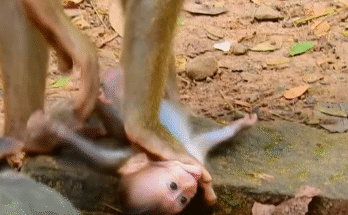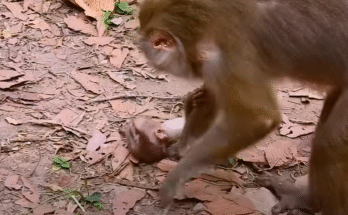At mymonkey.info we believe in the power of small moments – the ones filled with regret, the ones filled with laughter, the ones that teach us something. And the moment captured in “I’m so sorry Mummy!” is one of those. It’s the moment when a little monkey (or a little child-inspired monkey character) realises they’ve made a mistake, and bravely offers their apology.
We all slip up. We all say or do things we didn’t mean. Sometimes we act before we think. Sometimes we forget someone else’s feelings. And what makes a difference isn’t just the mistake itself – it’s what happens next.
In “I’m so sorry, Mummy!” the monkey recognises: “I’ve hurt you. I’ve let you down. I’m sorry.” That recognition is the first step. Then comes the apology — the two words “I’m sorry” said with sincerity. And finally comes making amends: what this little monkey does (and we hope your child will reflect on) is owning up, showing remorse, and seeking to make it right.

On mymonkey.info we’ve always said: it’s not enough to say sorry; we want to feel sorry, learn from the mistake, and move forward with kindness. Our monkey character here shows us that even when things go off track, the path back begins with honesty. The monkey approaches Mummy (or the caregiver figure) with head bowed, words sincere, eyes ready to make things better. And in that small gesture, there’s a big lesson.
For children, this is gold. They learn: mistakes happen. It’s okay. What matters is how you respond. That you say the words, I’m so sorry, Mummy, means you respect the person you hurt. That you try to fix it means you value the relationship. That you promise “I’ll do better” means you believe in change. And all of this builds trust, love, and growth.
For parents (or caregivers) reading this on mymonkey.info, this is also your moment. It’s the chance to say: “Thank you for saying you’re sorry. Let’s talk about how we fix this together.” It’s a moment to model what forgiveness looks like, what compassion looks like, what restoration looks like. When you respond with empathy, you show your child that mistakes don’t end relationships — they can deepen them.
In this story of “I’m so sorry Mummy” we also emphasise actions over just words. The apology is meaningful, yes — but what follows is equally important. Perhaps the monkey draws a little picture, perhaps the monkey helps clean up, perhaps the monkey hugs Mummy or says what they’ll do differently next time. These follow-throughs matter. At mymonkey.info we encourage you to ask: “What could you do to make it better?” And then help your child follow through.
And lastly, we remind everyone: there’s strength in vulnerability. Saying “I’m so sorry” isn’t weak; it takes courage. It takes humility. It takes caring enough to admit you were wrong and to commit to something better. When your child sees you admit your own mistakes, you teach them bravery. When you model forgiveness, you teach love. When you work together to rebuild trust, you teach connection.
So as you explore “I’m so sorry Mummy!” here on mymonkey.info, I invite you to pause after reading. Ask yourself: When was the last time I said those words? When was the last time my child said them? What happened next? Then ask: How can we grow from here? How can we help our little monkey (or child) learn that mistakes aren’t the end of the story — they’re the beginning of something better.
Because yes — our monkey messed up. But our monkey also made it right. And so can we. And so can you.
Thank you for visiting. Let’s turn “I’m so sorry, Mummy!” into a story of connection, learning and love.

